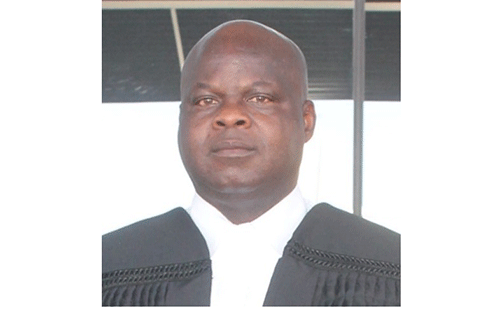Normally, the criminal justice process starts and ends at specific points, between which certain steps must be followed chronologically until the process concludes.
The process begins when a crime is reported to the authorities. Once a person is suspected of committing that crime, criminal law and procedures come into play, prescribing the steps to be taken to ensure the accused is either punished or discharged.
The police are tasked with investigating the alleged offence and decide whether there is sufficient admissible evidence to prove the accused’s guilt and to justify initiating prosecution. Once the investigation is completed, a case summary detailing all definitional elements of the crime is forwarded to the Office of the Prosecutor General (PG) by the police if they are satisfied with the evidence gathered.
The PG then decides whether to prosecute based on the evidence at hand. If she decides to proceed, it is known as arraigning the accused; if not, it is termed nolle prosequi, whereby the accused is discharged at a preparatory stage.
If the accused is arraigned, this marks the beginning of the pre-trial stage, followed by a preparatory examination that includes a verdict from the court after all witnesses have testified for or against the accused. Ultimately, the state bears the burden of proof to demonstrate beyond a reasonable doubt that the accused is guilty of the offence.
If an accused is held in custody awaiting trial, the police have a limited period to bring them to trial so the court can decide whether to continue custody or release them on bail pending the trial. The court must evaluate objectively whether the accused is suitable for release on bail or if there is a risk of him/her not attending the trial.
If the prosecution is prepared to proceed, the trial should begin without delay.
If the court finds the accused guilty, it then decides on the appropriate penalty to impose after allowing the accused an opportunity to make representations regarding mitigating circumstances for consideration when reaching its decision and imposing an appropriate sentence.
Strangely, in the Fishrot case, the accused seem to be the masters of suit (dominus litis) as the delays in commencing the trial suggest they may have overtaken the prosecutorial authority, thereby prejudicing themselves in the process. The trial should have commenced and concluded long ago; however, the accused have engaged in endless applications for various reliefs without success.
This situation can reverse the criminal justice process and procedures, as the state appears to be at a crossroads, unsure whether to proceed with the trial or succumb to the delaying tactics employed by the accused.
Such delaying tactics defeat the purpose of Article 12 of the Namibian Constitution, which states that a trial should occur within a reasonable timeframe, failing which the accused shall be released.
Considering these provisions, specifically under the Bill of Rights, one might infer that the delays in commencing and finalising the trial contravene the principles stating that the dignity of all individuals must be inviolable and the respect for human dignity guaranteed, prohibiting subjecting any person to cruel, inhuman, or degrading treatment or punishment. However, what if an individual is self-inflicting pain and suffering?
Only two options remain: either the accused should be released, or the prosecution must finalize the case without further delays, as the prolongation obviously undermines the trial’s purpose.
It is regrettable that the Fishrot accused have been incarcerated since 27 November 2019, which today marks exactly five years and five months of prolonged and harsh pre-trial detention. The only viable suggestion is for the state to commence the trial without delay, as continued postponement contravenes international law instruments such as the International Covenant on Civil and Political Rights (ICCPR) and the Universal Declaration of Human Rights (UDHR), both of which Namibia has ratified.
Therefore, the ongoing detention and delay in initiating the trial are inexplicable and undermine the purpose of the criminal justice process.
*Lucas Tshuuya is a Legal Practitioner from Onaanda in the Uukwambi district: tshuuya@iway.na.



